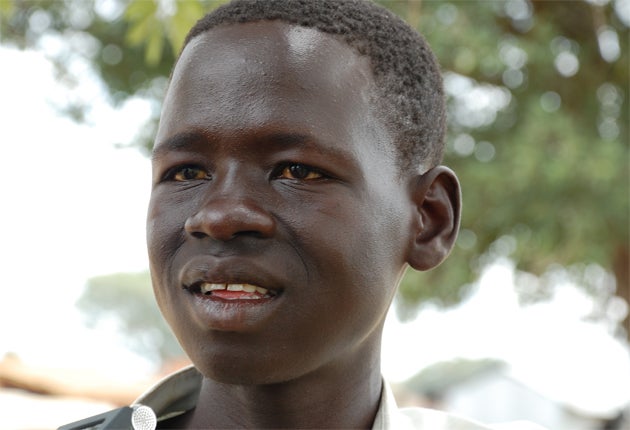Britain pledges £8.5bn boost for education in war zones
Afghanistan, Ethiopia, Nepal and Nigeria cited as priorities

Your support helps us to tell the story
From reproductive rights to climate change to Big Tech, The Independent is on the ground when the story is developing. Whether it's investigating the financials of Elon Musk's pro-Trump PAC or producing our latest documentary, 'The A Word', which shines a light on the American women fighting for reproductive rights, we know how important it is to parse out the facts from the messaging.
At such a critical moment in US history, we need reporters on the ground. Your donation allows us to keep sending journalists to speak to both sides of the story.
The Independent is trusted by Americans across the entire political spectrum. And unlike many other quality news outlets, we choose not to lock Americans out of our reporting and analysis with paywalls. We believe quality journalism should be available to everyone, paid for by those who can afford it.
Your support makes all the difference.War-torn and lawless countries will receive a massive boost in international aid to fund education, under a shake-up due to be unveiled today.
The Government is singling out countries in conflict as part of it's wider £8.5bn aid package – heralding a switch in resources from backing a more general development programme.
However, it will mean funding will be channelled to countries where there has been the least success in getting children into school.
These include Tanzania – where school enrolment has now doubled with 98 per cent of all children going to school – and Malawi where enrolment rates have increased by about 60 per cent since universal free primary education was made available in 1994.
Ministers have described the move as "a fundamental shift" to current policy on education aid.
The five countries considered as top priority are Afghanistan, Ethiopia, Nepal, Nigeria and Yemen. Others cited by the Government include Somalia and the Democratic Republic of Congo.
Under a shake-up, at least 50 per cent of all new bilateral aid available will be earmarked for what are termed "vulnerable countries".
The money, available between now and 2015, will be used to set up "safe zones" around schools and give families basic financial support – on the condition they send their children to school.
Officials acknowledge that – particularly in war zones – families are under pressure to send their children out to work to earn a living to supplement their income.
As a result, ministers will approve giving them the equivalent of the wage the child would earn – so long as they ensure the child goes to school instead.
In addition, they could approve aid for food parcels to ease the pressure on sending children out to earn a living.
The "remodelling" of the aid programme, to be spelt out in a document being released online today, is aimed at helping the United Nations reach its declared goal of providing all primary schoolchildren with a place by 2015.
Mike Foster, International Development minister for Education, said: "The UK's aid programme has achieved real results in education.
"But we must go further. That is why we are looking at what we need to do to help those children who have proved hardest to reach."
Case study: Child soldier who turned his life around
Patrick Omwony is a prime example of the children who can be helped by government aid.
He was abducted by rebels in northern Uganda at the age of nine and made to fight as a child soldier with the Lord's Resistance army, the rebel grouping in northern Uganda.
According to the Department for International Development, it can be very difficult for youngsters to quit once they have been abducted.
Patrick, who is now 17, found the courage to escape through listening to a broadcast on a radio station funded by DfID, Mega FM. It featured interviews with child soldiers who had made the break with their past lives.
Those interviewed told how they had been covered by amnesty protections once they had escaped.
Once back home, Patrick received counselling, clothing and bedding and began to earn money by growing sesame seeds that he sells at the local market.
Now, with help, he is planning to go back to school to study for a course in vocational training which will help him with his farming.
The Department for International Development is launching a wide-ranging public consultation today to investigate a range of options that will help shape a new education strategy which will be published later this year. DFID’s Education Strategy: Consultation Paper can be viewed at consultation.dfid.gov.uk/education2010 .
Join our commenting forum
Join thought-provoking conversations, follow other Independent readers and see their replies
Comments